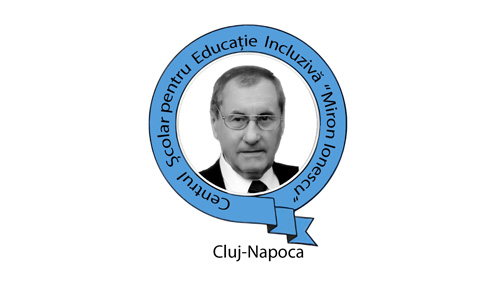Centrul Scolar pentru Educatie Incluziva ‘Mirion Ionescu’
Using the ABCDELA card game to develop critical thinking of students with special needs
Published 31/10/2022

Published 31/10/2022
VL is a student in the 5th grade. The speech therapy and psycho-pedagogical screening conducted with VL at entry to the school highlighted the following:
Social and affective area:
VL showed low motivation for activities and an average level of social of adaptation.
Cognitive-linguistic area:
VL partially knows the vowel and consonants. They have difficulties with decoding, especially regarding the order of the letters as well as difficulties in decomposing words. VL has difficulty replacing words with others and difficulties in reproducing familiar words. VL has discrepancies between listening and reading comprehension and deficit of auditory and verbal processing. VL has poor eye-motor coordination, attention deficit, low ability to perceive direction, impairment of the ability to differentiate and phonemic discrimination. VL shows a lack of interest as well as difficulties in strategic planning, organization and sequencing of a verbal presentation with slow processing of ideas and thoughts.
Within the Social affective area, the school aims for all students to show curiosity and interest in they activities they undertake. The schools aims to increase a student’s interest in solving the tasks proposed by the teacher to achieve better control over their emotions.
Within the Cognitive-linguistic area the school aims to develop non-verbal communication skills such as listening and understanding the short messages expressed by the therapist. To develop students’ language and enrich their vocabulary the school teaches students to recognize, identify, reproduce and acquire the knowledge of letters and to perfect these letters grapho-phonetically.
The therapists train students to differentiate phonetically and graphically similar phonemes-graphemes and to recognize and understand their meanings. To recognize and write vowels, to recognize and write consonants, to read and write correctly mono and bi-syllabic words and to recognize reproduce and consolidate their knowledge in order to create simple oral sentences.
Therapists use a range of methods encouraging students to use non-verbal communication methods including mime and gestures and develop skills to imitate some activities and action models offered by the therapist including alternating role and imitation. The therapists aim to form eye-motor coordination and to form words using the required sounds dividing the given words into syllables. They encourage students to use given letters and groups of letters in order to learn and to listen to messages formulated by people of different status. Students learn how to decode visual symbols with social significance in order to develop the ability to communicate appropriately in various situational contexts and to formulate questions and answers based on the given text. The school’s aim is for students to eventually write correctly mono and polysyllabic words, to use different sentences in various communication contexts and to read, at their own pace, short, simple texts, combined with images.
The specialists’ team will design different activities in order to make the acquisition of the goals listed above possible and to stimulate the development of student’s critical thinking ability.
Pictures (from left to right)
1.ABCDELA – educational games, 2. ABCDELA using letters, 3. ABCDELA using syllables, 4. ABCDELA using monosyllabic words, 5. Playing Hocus Pocus
Critical thinking represents the ability to analyze and evaluate information in order to determine their validity. It also creates the premise for students to form opinions and beliefs, take decisions, set objectives, solve problems and have a better understanding of themselves, others and the world around them.
Critical thinking allows the students to solve mathematical problems, compare different items, develop and build a point of view and increase the creativity, curiosity, and independence of children and develop this later in adulthood.
ABCDELA are specially designed educational card games to develop students’ critical thinking and support students both in mainstream and special education by offering them the opportunity to learn the Romanian language in an accurate form.
The card games contain a series of actions and operations that generate a state of well-being, of good mood, but which, at the same time, involve the operations of thinking. They develop players’ social skills and engage in moral conduct, educating players in the art of winning or losing. They also can be used as screening tools and to support the socio-professional integration of students.
The game aims to consolidate grammatical notions (letters, vowels, consonants, syllables, words, singular, plural), to develop social skills through pair/ group play, to increase reading fluency, to develop vocabulary to enable the following of game rules, to pursue an academic purpose and task and to introduce game elements to solve a “problem”
All three are attention games based on visual discrimination (between any cards in the pack there is always a pair of letters/ syllables/ monosyllabic words as a common element.
Literica (the small letter)
What am I?
Either way, in both game options, the one who collects the most cards wins.
The ‘TROUBLESOME SYLLABLE’ option
The ‘INTRUDER’
The one who collects the most cards wins.
Words hunt
Hocus-Pocus
I say one, you say many
In all the game options, the one who collects the most cards is the winner.